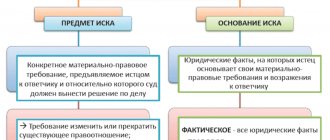The death of a person raises a large number of questions for his relatives that require resolution. One of these issues is the removal of the deceased from the apartment. This procedure is mandatory, as it allows you to dispose of the property in the future without any problems. If registration in the apartment was issued on the basis of a rental agreement, then such an agreement requires re-registration.
The deregistration of the deceased takes place at the Directorate for Migration Issues of the Ministry of Internal Affairs of the Russian Federation (formerly the Directorate of the Federal Migration Service of Russia).
In addition, an application for an extract at the place of residence can also be submitted through the multifunctional center for the provision of state and municipal services (MFC). As with any other legally significant procedure, to remove a deceased person from an apartment, it is necessary to collect a package of documents specified by law. To obtain one of the required documents— a citizen’s death certificate —you will need to collect a separate package of documents.
The application for discharge itself does not have a template established by law; it is drawn up arbitrarily in simple written form, indicating the specific data of the applicant, the deceased, the registration address and information about the body to which the application is being submitted.
Is it necessary to discharge a person from an apartment after death and why?
There are several reasons why it is necessary to discharge a person from living space after his death:
- All property that a citizen owned and disposed of during his lifetime passes to his heirs after death. After entering into inheritance, they have the right to sell the apartment where the deceased was previously registered. To do this, you will need to deregister everyone who is registered in it (clause 2 of Article 292 of the Civil Code of the Russian Federation). Sooner or later the deceased will have to be discharged, but it is better to do this on time in order to reduce the time for completing all the documents necessary for the sale.
- Payments for some utilities are calculated based on those registered in the residential premises. To reduce costs, it is better not to delay the discharge of a deceased relative.
- Difficulties may arise if you want to register an apartment for another person, since the minimum living space per person registered is taken into account. If the apartment is small and the deceased remains registered in it, another citizen may be denied registration if the standards for the number of square meters are not met.
- It is impossible to privatize an apartment if a deceased person remains registered in it.
When can a citizen be discharged without his consent?
Our legislation provides for only a few situations that allow a citizen to be discharged from his previous place of residence without his direct participation and consent:
- identifying the fact of forgery of documents or their inconsistency with reality;
- illegality of actions of authorized employees when performing registration actions (possible only after the court decision has entered into force);
- the need for a person to leave to serve in the ranks of the Russian army (all information is provided to the relevant authority by the military commissariat);
- serving a sentence by a citizen in places of restriction of freedom (possible only after the date the relevant court decision enters into legal force);
- official recognition of a person as missing (again after the court decision has entered into legal force);
- actual death of a person or recognition of this fact through a court (a supporting document will be required);
- the presence of an official act on the forced eviction of a person from the housing he occupies;
- receipt by the migration service unit of a request from a citizen of the Russian Federation with a request to remove him from the registration register, sent by mail from the state to which this citizen moved (the application must be certified by a notary, consulate or diplomatic mission).
Who can discharge a deceased person from an apartment?
The procedure for deregistration of an apartment is usually carried out by citizens related by family ties: spouse, children, parents, grandparents, etc.
In the absence, a person who has received the original death certificate of the citizen and documents for the housing from which he needs to be discharged can apply for an extract.
If the owner of the apartment has died, then it is necessary first for the apartment to be inherited, and then to proceed with the extract.
Death certificate
The first document in this chain is the death certificate. You can get it in three places:
- In the hospital, if the person died there;
- In the ambulance that pronounced death;
- In the morgue where the deceased was taken.
If the deceased was disabled and was observed in a clinic for a chronic disease, a death certificate can be issued by the attending physician. Typically, a certificate is issued after an autopsy and indicates the cause of death.
The following persons can receive it:
- Relatives;
- If the deceased was a military serviceman and the death occurred in the army, in a military educational institution - the unit commander;
- Representatives of social services;
- Representatives of investigative authorities, if the death was criminal;
- Employees of the penal institution where the deceased was serving his sentence.
The certificate is issued upon request and there are usually no problems with obtaining it.
How long does it take to discharge a person after death?
There is no legislative deadline for applying for an extract from a deceased citizen and therefore no fines are provided in this regard. Therefore, relatives have the right to decide for themselves when to submit a corresponding application to the migration service, in a week, month or year.
Relatives or another person can immediately apply for an extract from the apartment after receiving the citizen’s death certificate. The date of the discharge mark will be the date of death indicated in the certificate, and in its absence, the date of state registration of death.
Deadlines
Let us say right away that no “excusable” deadlines apply as an exception. The discharge of the deceased from a municipal apartment occurs within 3-4 days from the date of the relative’s application. The timing may vary depending on the workload of the territorial office of the Main Directorate for Migration Affairs of the Ministry of Internal Affairs.
It is advisable not to delay the deregistration - the sooner you deregister the deceased, the fewer utility bills you will receive for the apartment. Imagine that the tenant is no longer there, but the management company continues to charge payments as if for a living person.
Early deregistration from the apartment allows you to resolve this issue once and for all.
Through what authorities can a deceased person be discharged?
All actions related to registration of citizens are carried out by the Directorate for Migration Issues of the Ministry of Internal Affairs of Russia. You can submit an application for the discharge of a deceased person in one of the following ways:
- directly to the migration service;
- through the MFC;
- through a homeowners association or management company;
- fill out the electronic application form on the State Services website.
Additionally, you should contact the HOA or management company to re-register your personal account if the deceased citizen was the owner of the apartment.
Why register the deceased from his place of residence?
As soon as a person dies, all the benefits that were given to him during life immediately cease to operate. This also applies to property rights. The person does not exist, therefore, you need to issue an extract from the place where he was registered. It becomes necessary to:
- no extra utility bills were charged;
- it was possible to register new people in an apartment or private house;
- be able to privatize or sell housing.
Therefore, remove the deceased person from the register immediately after receiving the paper confirming the occurrence of death (as a rule, this role is performed by a certificate). This will avoid many difficulties in the further disposal of residential property.
Documents for discharging a deceased person from an apartment
The authorized body will only need to provide the original death certificate of the citizen. If it is not submitted, the department independently requests information from the civil registry office and, based on the response, deregisters.
To obtain a death certificate, you must contact the MFC or the civil registry office at the latest:
- place of residence of the deceased;
- the location of the organization that issued the death certificate;
- the place where death occurred or where the body of the deceased was found.
The applicant must present:
- a certificate of the death of a citizen or a notarized copy of a court decision declaring him dead;
- the deceased’s passport (if available) is submitted to the civil registry office or MFC and is declared invalid from the date of death;
- applicant's passport;
- application for deregistration of the deceased.
If the application is sent to the department through the State Services portal, then the listed documents must be submitted in person to the registry office. A death certificate will be issued on the day of application.
Statement of claim for deregistration by the owner through the court
If it is impossible to resolve the issue by other means, you will have to act through the courts. The process of deregistration by the owner is initiated by filing a claim in court to terminate the right to use the residential premises. The defendant will be the person who must be discharged from the apartment in court.
In the case where the defendant is not only registered in the apartment, but actually occupies the living space, the statement of claim contains a demand for eviction. In such a situation, the prosecutor will participate in the trial.
The owner may apply to the court both to terminate the right to use the apartment of a person who received such a right during the period of ownership of the property by the plaintiff, and in the case when the apartment was purchased with persons already living.
The law provides for circumstances that may prevent eviction and deregistration through the court. Thus, the court may refuse to satisfy the claim for a certain period if the defendant does not have the opportunity to live in another place for any reason.
Another common reason for refusal is a situation where the owner pays alimony to the defendant. In this case, the court may satisfy the claim, but on the condition that the plaintiff provides the defendant with other living space.
In addition, the law protects persons who had the right to use residential premises on the date of privatization, but did not take part in the procedure. It is impossible to evict such tenants, even if the apartment has been sold and the owner has changed. An exception will be if residents violate the requirements of the law and by their actions endanger the safety of their neighbors.
Once the claim is accepted, a court date will be set. It is necessary to take part in this event and provide evidence of the circumstances set out in the claim.
The court will review the case materials and listen to the arguments of the parties and interested parties, and then make a decision. Participants in the process will have a month to appeal; after this time, the decision will enter into legal force.
If it is necessary to execute the decision regarding the eviction of the defendant, the owner must request a writ of execution. This document is sent to the bailiff service.
A court decision that has entered into legal force is transferred to the authorized body that carries out registration. Based on this document, the defendant is discharged.
Participation in legal proceedings may require the assistance of a legal professional. In this case, it is necessary to contact specialists who have extensive experience in this matter.
How to file a claim
The statement of claim is drawn up in strict accordance with the requirements of Art. 131 Code of Civil Procedure of the Russian Federation. The text of the document contains the following information:
- identification data of the plaintiff and defendant - full name, residential address, contact information;
- name of the judicial authority to which the application is submitted;
- a concise description of the circumstances of the case;
- claim to court;
- list of attached documents.
If errors are discovered in the claim, it may be returned to the applicant or left without movement. To avoid such situations, you can contact a lawyer to file a claim.
The text of the statement of claim does not always include a requirement for deregistration. The authorized body will do this administratively based on a court decision.
Documentation
The following documents must be attached to the statement of claim:
- an extract from the Unified State Register or a certificate of ownership of residential premises;
- document confirming the loss of the right to use living space (for example, a certificate of divorce;
- notification of vacancy of residential premises with confirmation of delivery to the addressee;
- other papers confirming the plaintiff’s claims;
- receipt of payment of state duty.
All documents are provided in quantities equal to the number of persons participating in the process.
State duty
Appeals to judicial authorities are subject to a state fee. This is regulated by Art. 333.19 Tax Code of the Russian Federation. For a statement of claim for eviction and deregistration, you will need to pay 300 rubles.
A receipt with details is issued by the head of the office. You can pay it at any bank.
Stages of discharge
The discharge of a deceased citizen occurs according to the following algorithm:
Obtain a death certificate or a court decision declaring a citizen dead. The certificate is issued:
- a medical organization if a citizen died while being treated;
- morgue in case of delivery to it for autopsy, identification or release to relatives;
- by an emergency medical technician when certifying the fact of death at home.
A relative or other interested person, if they are absent from the deceased, applies for a death certificate.
An application for discharge is submitted to the Migration Service of the Ministry of Internal Affairs.
The department removes the citizen from registration within three days.
After receiving supporting documents, if necessary, the personal account is reissued and the amount paid for utility bills is recalculated.
If the deceased relative was a tenant of municipal housing under a social tenancy agreement, then the contract will need to be reissued to the relative who lived with him in the premises.
To do this, you will need to contact your local municipality with a corresponding application, attaching:
- death certificate of the employer;
- your passport;
- a document confirming family relations with him.
If housing is not privatized
When a resident does not mind moving to another living space, he can independently register in the new place. Thus, it will be automatically deregistered. In other cases, it is possible to discharge a person and deprive him of the right to live in a municipal apartment only through the court.
By law, all employers have equal rights. Each of them has the right to use the residential premises in full. It is impossible to evict an unwanted neighbor from a municipal apartment without good reason.
The reason for eviction may be:
- actual absence of the tenant from the apartment for a long time (more than a year);
- non-payment of utility bills;
- immoral behavior of a resident that violates the rights of other residents.
Action must be taken through the courts. However, the statement of claim will not be accepted if the pre-trial procedure is not followed. A written notice must be given to the person whose eviction is planned. It is compiled in any form. The text must indicate the date of the expected departure of the resident from the apartment and the date of expected deregistration.
Notice may be given in person or by mail. In the first case, you need to put the personal signature of the problem tenant on the second copy, which will confirm the fact of receipt. In the second, a letter is sent with a list of attachments and a notification of delivery to the addressee. A copy of the second copy of the notice with the signature of the recipient or postal confirmation of delivery is attached to the statement of claim when filing a lawsuit.
If the problem tenant does not vacate the premises within the period specified in the notice, he will have to go to court. To do this, a statement of claim is filed according to the rules established by Art. 131 Code of Civil Procedure of the Russian Federation. To avoid the return of the claim, it is advisable to seek help from a professional lawyer.
In common parlance, this formality is also called “extract” or “extract from permanent residence”; the essence of these concepts is the same. The procedure itself has many nuances, knowledge of which will help you avoid delays and resolve all bureaucratic issues in a short time.
Documents you will need
Just coming to the FMS office or passport office to get discharged is not enough. The applicant must also provide the receiving staff with several documents:
- Application for deregistration
This document must be written in person, with the exception of applications from children under 14 years of age and persons whose legal capacity has been limited by the court - legal representatives act for them.
The application form is usually free-form, but at the place where you apply for the service you can always get a sample or a form to fill out. In the text of the application, it is imperative to write legibly and without abbreviations the applicant’s full name, his passport details, as well as the address of departure and the address where the move is being made.
In cases where a citizen applies for the deregistration service at the time of registration at a new address of residence, there is no need to write a separate application. For these purposes, the lower part of the application form for registration is provided.
- Passport of a citizen of the Russian Federation or an equivalent document
Children under 14 years of age will need an original birth certificate. Those who are already 14 years old will need to obtain a passport for discharge and subsequent registration; such a procedure will not be carried out with a birth certificate.
A citizen’s passport should not be expired, it should be in proper form - without handwritten notes or amendments on the pages, the integrity of the sheets should not be compromised.
- House book or apartment card
If a citizen lives in a private house, he will most likely have a house register in his hands. Those living in apartment buildings should not worry about this - all passport officers have apartment cards for the entire housing stock of the locality.
- Departure address sheet
The specified document form is filled out in two copies directly at the authorized body. Few people know that this responsibility is assigned to passport officers or receiving FMS employees. Most often, they force the citizen to enter the necessary information into the form.
- Statistical departure sheet
This document is submitted only by those citizens who radically change their place of permanent residence - travel outside our state. When moving within our country, this document is not filled out. The statistical departure sheet should also be filled out not by the citizen, but by the responsible employee.
- Written consent of guardianship and trusteeship officials for the discharge of a minor child
You will need to bring it if we are talking about discharging a child who is without parental care.
There is no charge for any actions related to deregistration or registration; all actions of employees are carried out free of charge.
Even if not all the required documents have been collected or the conditions for their submission to the competent authority are not met, authorized employees are required to accept an application from the applicant for an extract from the previous place of residence. They do not have the legal right to refuse admission; this is clearly stated in the Administrative Regulations.
When can you start the discharge procedure?
There are 2 options for how you can deregister yourself at your permanent address, they both depend on when the citizen starts the procedure:
- Before changing your residential address. In this option, you will need to go to the nearest passport office or the regional migration service office and declare your upcoming change of residence. You will have to enter all the information into the application form yourself and hand in your passport. After a few days, you will be able to get your passport back with a departure stamp stamped on its pages. You will also be given a departure address sheet, which will be needed for further registration.
- Already after the move. Quite a long time ago, Russians had the opportunity to submit documents for deregistration at the same time as registration at a new address of residence. All that is needed in this case, in addition to having the required documents, is to go to the authorized organization at the new place of residence and write the required applications - for registration and a request for an extract from the previous address. Sometimes this method of submitting documents may take a little longer than the previous option, but in many cases this method turns out to be the most convenient.
Features of the procedure after moving
The convenience of deregistration from a previous place of residence after the fact of moving frees citizens from coming to the passport office or the Federal Migration Service twice a day, because both application forms required for both deregistration and subsequent registration at a new address are filled out and submitted at the same time. This is convenient for those who save their time and nerves.
Formally, the deadline for the extract in this case remains the same as if the citizen applied for it before changing his main address - 3 business days from the date of submission of the application and passport to the authorized body. But in practice, delays may occur if the citizen’s previous address is in another locality or region. This is due to the fact that at the place of previous registration they learn about the citizen’s move only through the postal service, but, as is known, the speed of delivery of correspondence by regular mail in our country is not high enough. Of course, the applicant will receive his passport with all the marks within the period established by law (3 days), but the entry that he has left in the database of the migration department at the address of his previous registration will appear a little later.
The algorithm of actions of FMS employees will be as follows:
- the citizen is registered at the new address where he began to live after moving;
- within just three days from the date of making a record of a new registration, a request for an extract of the interested person is sent by mail to the authorized body serving the address at which the citizen was previously registered.
Due to the fact that this option of changing the main place of registration of citizens requires additional actions from employees of the authorized body, they may deliberately not notify people contacting them that they have the opportunity to simultaneously issue a registration and an extract. But this is very convenient for citizens! In this way, you can halve the time spent visiting the relevant authorities and standing in queues. In addition, you will not have to go to your old place of residence if the move was made to another locality or region.
But it is important to understand that remote registration is possible only if the citizen applies for permanent registration at the new place of residence. If we are talking about registration of temporary registration, FMS employees do not have the right to write out from the previous address “upon request”. If, after moving, a citizen does not intend to register at a new address, he will also be denied an extract “upon request”.
How much to wait? What are the deadlines?
Administrative regulations establish the maximum permissible period for deregistration of a citizen at the address of his previous registration. This procedure is carried out by the authorized body within three working days. This period begins to run when the citizen submits all required documents that are correctly completed.
This period will automatically extend twice as long if the application and documents were submitted through the MFC or passport office. An additional 3 days will be needed to deliver documents to the FMS department for registration actions and back.
In any case, the maximum period of time for carrying out all necessary actions, after which a citizen will be able to receive his passport back, does not exceed 6 days.
Difficulties that may arise
Discharging a deceased person is not always easy. Let us give an example when difficulties arose that had to be resolved only through the courts.
The citizen is registered in the apartment, but there has been no information about him for several years. There is a need to sell this property, but no one must be registered in it to complete the transaction. It is impossible to discharge a missing relative without his consent; all that remains is to go to court to declare him dead.
According to Art. 42 of the Civil Code of the Russian Federation, in case of absence from the place of residence for a year, the court can recognize the person as missing. After five years of absence of information about a citizen, relatives can apply to the court to declare him dead. Only on the basis of a court decision is a person deregistered from the apartment.
FacebookVKontakte
Communal payments
As long as a person is registered in the apartment, even if he died, he will have to pay utility bills. To cancel the accrual of payments, you will have to contact the organization that accrues them (management company, HOA, etc.).
In this case, it is necessary to provide the following documents:
- death certificate of the registered person;
- passport of the person making the request;
- application (a sample can be taken from the organization or drawn up in any form).
After this, the organization that calculates utility bills is obliged to recalculate for the entire time starting from the day of the person’s death. They have no right to refuse recalculation.
However, if this happens, then demand a written refusal, and then contact the prosecutor’s office, or, in extreme cases, the court.
It is worth understanding that after an application for a reduction in payments, all benefits that were due to the deceased person are canceled. They are not inherited, so there is no point in claiming them. The recalculation will also occur without taking into account the benefits assigned to the deceased.
Example. Six months after the death of Volkov E.M. his wife Volkova S.L. appealed to the management company with a request not to charge fees for the deceased and to recalculate utility bills. The head of the management company explained that the recalculation would not be made, since Volkova had a debt to pay for utilities and said that she should have contacted the management company earlier.
Volkova S.L. I turned to a lawyer for advice, who explained that the arguments of the director of the Criminal Code were contrary to the law. He helped file a claim with the management company, but there was no response. Then the lawyer drew up a statement of claim to the court and represented the interests of S.L. Volkova at the court hearing. The court fully satisfied the claims, the defendant's arguments were recognized as untenable and contrary to the law. By decision of the court, the Criminal Code made a recalculation.
Where to contact
Registration issues are regulated by the Federal Migration Service. To discharge a tenant from an apartment after his death, you must personally (or through legal representatives) visit its nearest territorial office or intermediary organization.
The law also provides for a remote route - the possibility of sending an electronic application through the personal account of the State Services website with the provision of scanned copies and later original documents.
Where can they write:
- at the passport office at the HOA or housing department (passport and visa service);
- through the Internet service - Unified Portal of State Services;
- regional branch of the Federal Migration Service;
- through the current division of the State Budgetary Institution MFC, located at the place of residence of the deceased, otherwise “My Documents”.
Possible difficulties
Relations between relatives do not always develop in a positive way. It is not uncommon for family members to be unable to share a death certificate. Without this document, it is impossible to take any legal action regarding the deceased or his property.
The complexity is solved by ordering a duplicate of the required document. This can be done by personally contacting the registry office, by submitting an application on the State Services portal, or by visiting the territorial MFC.
The initial issue of a certificate is not subject to state duty, but you will have to pay for a duplicate. The fee is 200 rubles.
Common mistakes
Sometimes during the procedure for discharging a deceased person, relatives make some mistakes:
- they begin to ask for benefits on utility bills
- according to the law, they do not have the right to this, since all privileges and discounts for the deceased “burn out” with his death and are no longer valid even during the six-month period when the property is formally still on him; - They recalculate payments for utility services at the wrong time, expecting to pay them with benefits as much as possible
- such actions do not make sense, since they only lead to litigation with utility services and end in loss.
The procedure for discharging a deceased person from the apartment or house where he lived is not difficult. The main thing is to study all the nuances and do not delay this process, so as not to create possible problems in the future. If necessary, contact a lawyer for clarification of complex issues.









